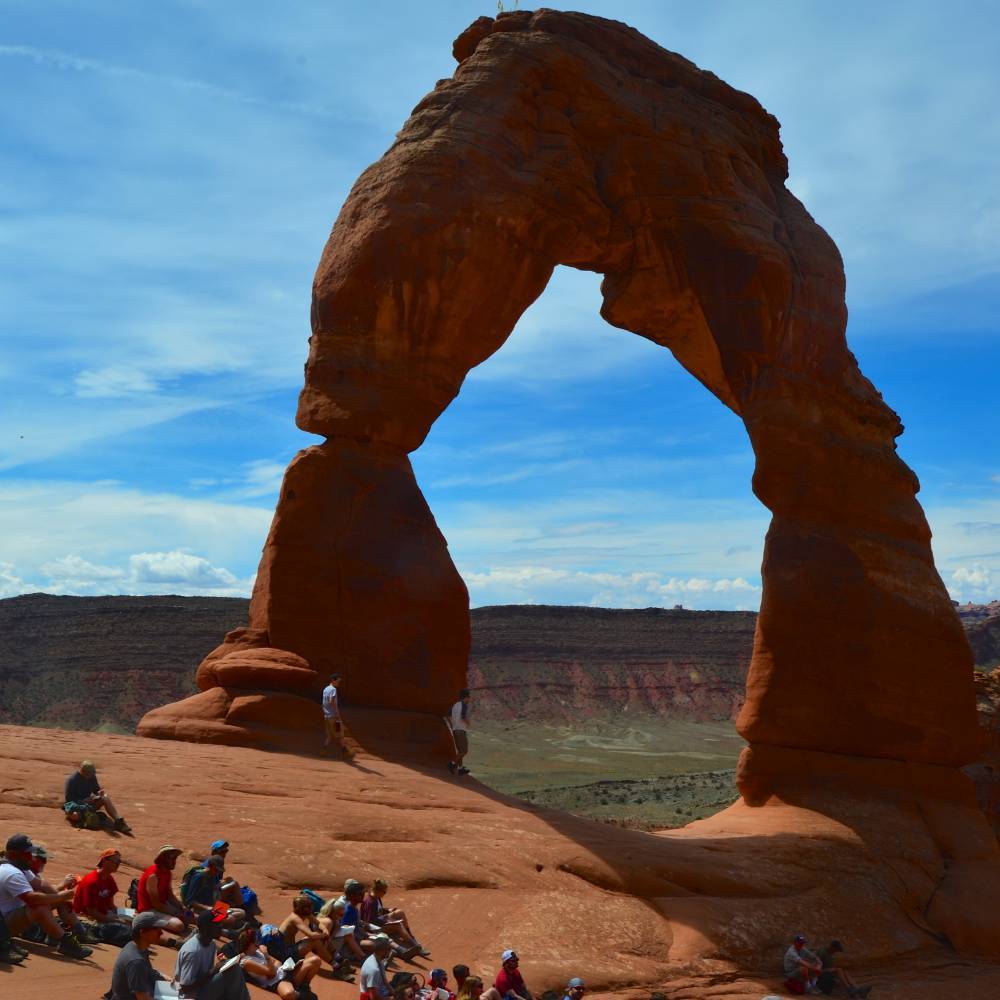
GEOL 500 StoryMap
Take a tour of the sites and locations the GEOL 500 class visits on their quest to map out the geological features of the Western United States.
Geological field techniques including the use of field instruments and the preparation
of geologic maps
6-Week Session I (3S1)
All graduates with a B.S. in Geological Sciences are expected to possess basic field skills in the geosciences. The GEOL 500 is a six-week ‘capstone’ course that is taught every May in Cañon City, Colorado.
This course is taught by Geology faculty members. Enrollment is limited to 20 students, which provides an excellent student-to-teacher ratio. The course typically runs from mid-May through the end of June.
Field work is concentrated in the Cañon City, Colorado area, where the geology is dominated by numerous geological features along the Rocky Mountain Front. In addition to Cañon City, two one-week trips are taken to areas displaying geologic features. The course travels to the Arches-Canyonlands then to the Salt Valley in eastern Utah to study depositional environments, sequence stratigraphy and sedimentary basin analysis. Next, students travel to the Henry Mountains to study the igneous rock formations and local structures. The final stop on the tour is Valles Caldera National Preserve in New Mexico. Check out our StoryMap for a more in depth travel guide.
GEOL 325
GEOL 355
6-Week Session I (3S1)*
*Check with the Registrar’s Office for current Summer Semester Dates
There is an instructor override with this course. You cannot register for this course until you have completed the following:
Transportation is provided by the University. Two 15-passenger van will be available for students to commute from the UofSC campus (Columbia, SC) to and from all field sites. The vans will be driven by an instructors with driving certification.
Students should prepare for self-sufficient dispersed camping on public lands (BLM, USFS) and briefly in developed campgrounds. Students will sleep in personal tents. All meals are provided by the University, except during transit days when, for logistical reasons, students are responsible for their own (usually fast) food.
Camping equipment can be rented through the University's Campus Recreation.
Summer Course Prices:
UofSC Resident (or Non-resident) Tuition for 4 credit hours**
UofSC Technology Fee**
UofSC Lab Fee (Arts and Sciences Dept Fee)**
Program Fee – Marketplace - $900:
Students with demonstrated financial need should contact the SEOE Director.
**Check with the Bursar’s Office for current UofSC tuition and fees.